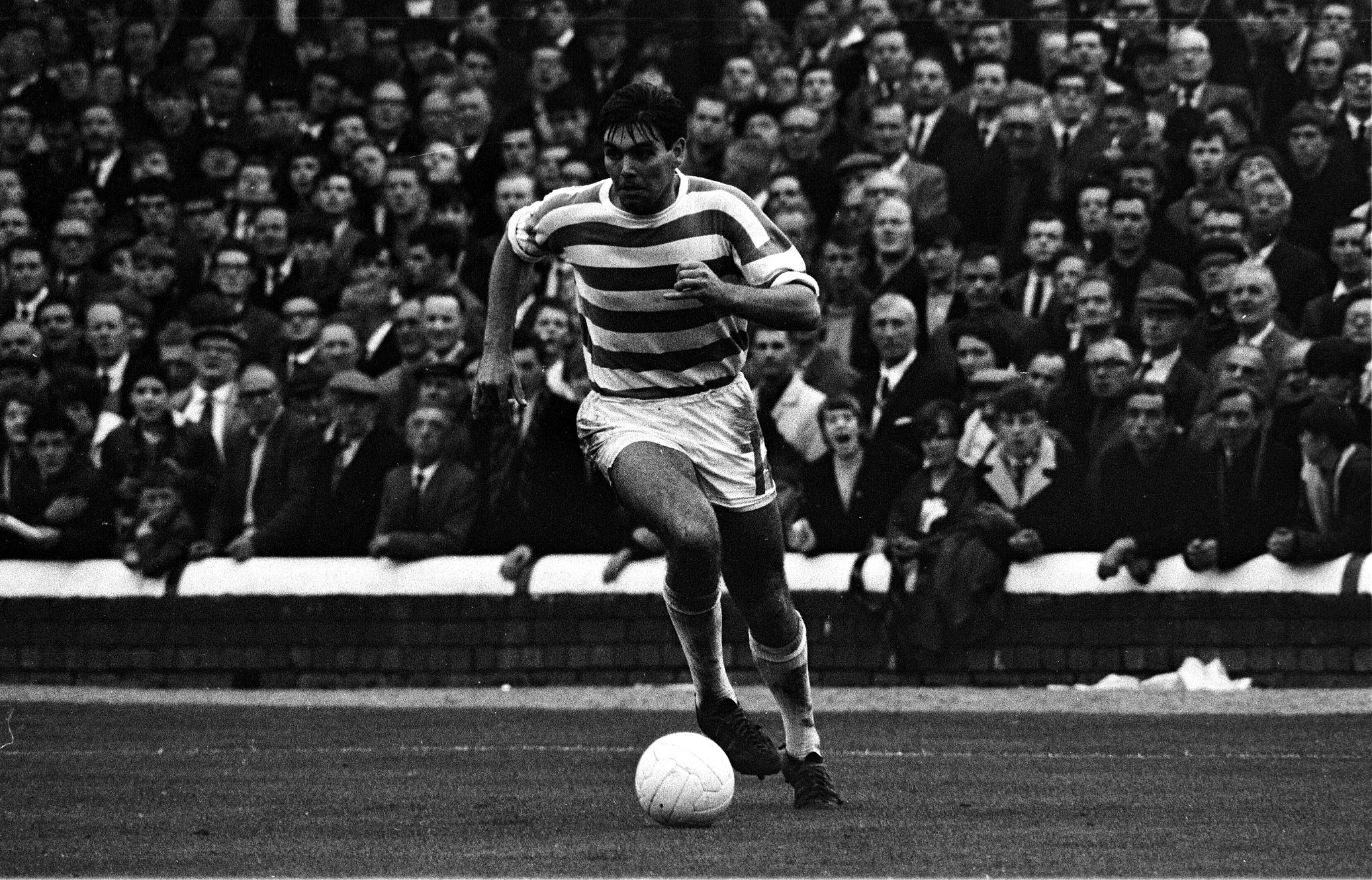
THERE are surely worse things to be remembered for than scoring an iconic goal against the mighty Leeds United in the 1970 European Cup semi-final in front of 136,505 at Hampden Park, but to reduce John Hughes’s Celtic legacy to that singular moment is to do the legendary forward an injustice.
That stooping header, as ‘Yogi’ lunged ahead of Jackie Charlton to meet Bertie Auld’s cross with a deft glance that found the far corner, would have been enough to cement Hughes’s place among the pantheon of Celtic greats, but there was much more to his story at the club than that famous evening in Mount Florida.
Hughes, who died on Monday aged 79, scored 189 goals in 416 matches for Celtic and earned seven league title medals, four Scottish Cups and five League Cups in a 12-year stretch at the club.
‘Feed the Bear’ would come the shout from the terraces when Celtic were most in need of a goal, the fans placing their faith in the mercurial attacker, who in turn relished the challenge of coming up with the goods. Frequently, he managed it.
It would indeed be the European Cup that would most shape Hughes’s Celtic career though, and for all that his goal against Leeds United was a high watermark of his time at the club, the tournament would also provide moments of anguish, and provoke a famous rift with legendary manager Jock Stein that would ultimately lead to Hughes being sold to Crystal Palace.
Hughes signed for Celtic in 1959, and survived the lean years that preceded Stein’s arrival in 1965. He was a regular under Stein, but was injured ahead of the 1967 European Cup final, and didn’t play in Lisbon as Celtic beat Inter Milan to become the first British side to win the tournament.
The Lions would always ensure that Hughes was acknowledged for the part he played in the triumph, and included him in the various anniversaries and commemorations that would follow over the years, but the pain Hughes felt at missing out on the match at the Estadio Nacional wasn’t lost on Stein.
Indeed, he used that sore point as a motivational tool on Hughes prior to the most famous evening of his Celtic career, taking the striker aside before he ran out at Hampden to take on Leeds.
“I know you were sick about missing the last final, but if you do well for me tonight and we reach the final, you’ll definitely play,” Stein told Hughes.
He would rise to the challenge and then some, causing all sorts of problems for his illustrious opponent, England’s World Cup winner Charlton, before seizing his moment when that ball came floating in from the right.
Stein would be true to his word, and after Bobby Murdoch’s goal had put the seal on Celtic’s progression, Hughes was again entrusted to lead the line in the final against Feyenoord. Alas, he would miss a one-on-one chance in extra-time before the Dutch side went on to triumph by two goals to one, and his suspicion was that at that very moment, his Celtic career was effectively over.
“That miss did for me, I’m sure,” Hughes told Hugh MacDonald in the Daily Mail on the 50th anniversary of that campaign.
“Stein never forgave me for that, that is all I can think.”
Sure enough, Hughes was sold a year later. Sadly, a bad knee injury just a few months later would end his career altogether, and his antipathy towards Stein only increased as a result.
“Why else would he have done it?” Hughes later reflected.
“He got rid of me when I was in my prime and three months later I was finished at 28. People say to me, ‘Are you bitter?’ Yes.
“I think I’m the seventh highest goalscorer but had I stayed until I was 32 and kept scoring at the same rate I’d have been third.”
Just as Hughes shouldn’t solely be remembered for his goal against Leeds United though, neither should the end of his relationship with Celtic’s greatest ever manager cast any doubt over his enduring love for the club.
“Don’t get me wrong, I had some great times under him,” Hughes said. “When he came I played most of the time. It was only latterly things went wrong.”
Ultimately, Hughes wished to be remembered not as a Celtic great, but simply as a Celtic man. And as the poignant announcement of his death posted on social media by his family showed, he remained that until the very end, revelling in the pageantry of Sunday’s flag day at Celtic Park before slipping out of consciousness.
"He rallied one last time on Sunday to sing us ‘Grace’ as best he could,” it read.
"His last conscious acts were hanging on for YNWA & giving us a wee fist pump celebration for Stephen (Welsh)’s goal.
"There is undeniable magic about this club we all love.
"A Celtic man until his last breath."







